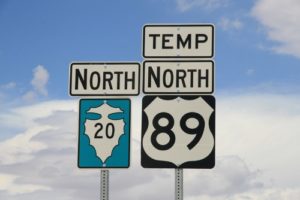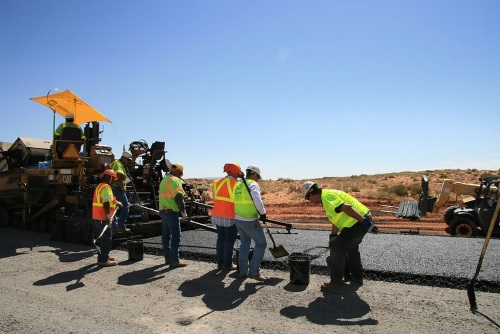The Transportation Research Board recently issued a National Cooperative Highway Research Program report that explores how “unique tribal perspectives and expertise” could boost tribal engagement in a variety of surface transportation projects.
Additional resources for this report – entitled NCHRP Web-Only Document 281: Integrating Tribal Expertise into Processes to Identify, Evaluate, and Record Cultural Resources – include a Quick-Reference Guide and a PowerPoint Presentation.
This NCHRP report concluded that – from the tribal perspective — state agencies need to make sure to reach out to tribes to learn what their research questions and interests may be and bring these into the research design for a project, as part of thoughtful, collaborative research.
In addition, state agencies need to be willing to work with tribes and have productive conversations, including the ability to switch easily between scientific jargon and standard language to build understanding.
One tribe interviewed for this research report noted that sometimes there are differences in perspective – something both parties, tribes as well as state agencies, need to overcome.
“It is important to talk through any challenges,” the tribe noted in its response. “The bottom line is that sustained communication leads to effective consultation and in turn to collaboration.”
This NCHRP follows several initiatives at both the federal and state level to improve the integration of tribal needs within the planning process for surface transportation projects.

For example, in October 2019, the U.S. Department of Transportation proffered a Notice of Proposed Rulemaking that aims to establish a tribal transportation self-governance program – the result of what the agency is calling a “successful three-year negotiated consensus rulemaking process” between representatives of North American Indian tribes, USDOT, and the Department of the Interior.
USDOT added that “among the many benefits” of the proposed self-governance program is streamlining transportation funding distribution to North American Indian tribes – creating a “less onerous” regulatory framework while promoting greater self-sufficiency among tribal governments.
State governments are engaged in similar efforts. In December 2019, the Georgia Department of Transportation signed a new consolatory agreement with the Federal Highway Administration, the U.S. Army Corps of Engineers Savannah District, the Advisory Council on Historic Preservation, the Georgia State Historic Preservation Office, and the state’s 20 federally recognized Native American Indian Tribes.
That agreement establishes a framework for approving all types transportation projects throughout the state – from widening highways to the location of new bypasses – while protecting ancestral tribal lands.

